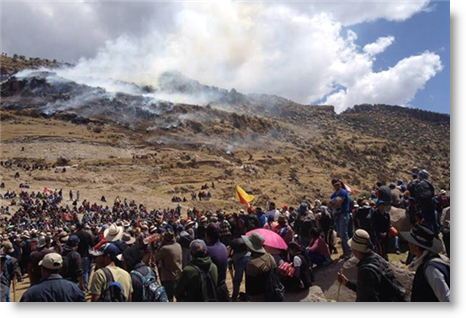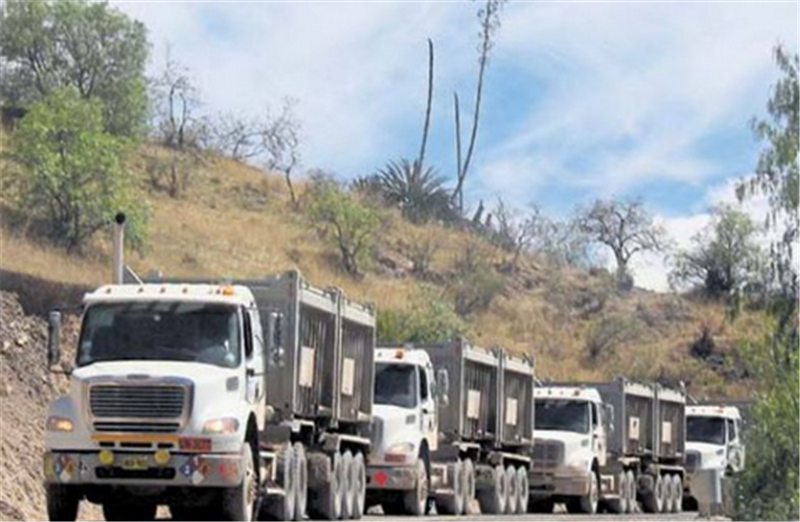
Five years after the first charges were made, nineteen community leaders in Cotabambas, in the Apurimac region in southern Peru, have been found not guilty of disturbances and serious property damage during protests against the Las Bambas copper mine project.
The judge seeing the case, Andrés Aguilar, said there was insufficient evidence and ordered the case to be closed. The state prosecutor had called for prison sentences of between 11 and 17 years and the payment of damages of $88,600 to MMG Limited, the Chinese company that operates Las Bambas.

Protests and a provincial strike in September 2015 led to four deaths and 15 persons injured, including police. There was also damage to the mining company’s property. The protests were against changes made in the project’s environmental impact study without prior consultation with local communities — under the initial study by the Swiss Glencore- Xstrata consortium, the minerals from the mine were to be transported by a pipeline to the coast. When Minerals and Metals Group acquired the project, they chose to transport the minerals by truck on an unpaved road through pastureland owned by the local communities.
The protests increased as bothMMG and the government responded sporadically to calls for negotiation, while at the same time unscrupulous lawyers and political interests encouraged protestors to increase their demands.
After four years and more than eight postponements, the final phase of the trial against the community leaders began in early February this year. Observers from national and international human rights groups were present at the trial, and local community leaders from the province of Cotabambas stood watch outside the courthouse.
According to the local organization CooperAccion, which monitors the extractive industries, there is a need to review laws that criminalize protests and weaken the protection of human rights defenders and environmentalists. In February, two of the community leaders on trial told Michel Forst, the United Nations rapporteur, that police had planted weapons in their property.
Last year, OEFA, which evaluates and monitors environmental issues, recommended that the road that runs through the Cotabambas province from the mine should be paved to reduce pollution considerably and that the mineral transport convoys be scheduled for certain hours.
The relationship between the government and the communities remains sensitive as plans move forward on creating a Southern Mining Corridor that could affect landholdings along key transport routes.





